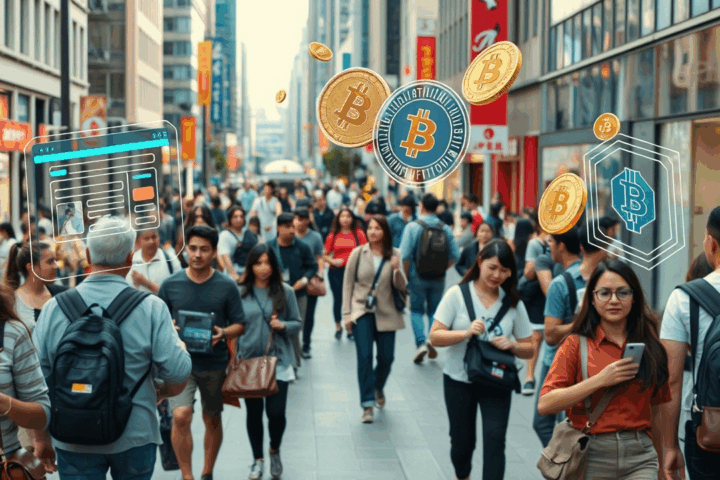In the crypto world, one fundamental process stands tall as the cornerstone of its functionality: crypto mining. This intricate procedure not only ushers new digital coins into circulation but also upholds the integrity of blockchain technology, the bedrock of these virtual assets.
In this comprehensive exploration, we will navigate through the complexities of crypto mining, dissecting its mechanisms, economic ramifications, and environmental considerations.
Understanding Crypto Mining
At its essence, crypto mining includes two important functions:
Transaction Validation: Miners undertake the task of solving complex computational puzzles to validate and secure transactions on the blockchain. This meticulous process ensures the precision and reliability of every transaction recorded.
New Coin Creation: Miners are duly rewarded with freshly minted cryptocurrency units for their contribution to maintaining the network. This incentivization mechanism serves as a driving force behind their continued participation.
Cryptocurrency Mining Mechanisms
Proof of Work (PoW): Predominantly employed by cryptocurrencies like Bitcoin, PoW serves as the quintessential consensus mechanism. Miners engage in a race to solve intricate mathematical puzzles, with the first successful miner earning the privilege of adding a new block to the blockchain. However, this process demands substantial computational power and energy resources.
The Mining Process in Depth
Transactions, Blocks, and Validation:
- Transactions are consolidated into blocks awaiting validation.
- Miners validate these transactions by unraveling cryptographic puzzles.
- Upon validation, the block is seamlessly integrated into the blockchain ledger.
The Role of Miners and Mining Pools:
- Miners engage in independent competition to solve puzzles efficiently.
- Mining pools amalgamate computational power, fostering collaborative efforts toward more effective mining endeavors.
- Rewards garnered through mining activities are distributed equitably among pool participants.
Economics of Mining
Profitability: While successful mining endeavors can be financially rewarding, profitability is contingent upon meticulous consideration of costs, including hardware, electricity, and maintenance expenses.
Investment: Miners commit to substantial investments in powerful hardware rigs, constituting a significant portion of the overall operational expenses.
Market Volatility: The fluctuating prices of cryptocurrencies exert a profound influence on mining profitability, necessitating adaptability and strategic decision-making.
Environmental Concerns
Energy Intensity: The prodigious energy consumption associated with mining activities prompts pertinent environmental inquiries, underscoring the need for sustainable practices within the crypto-mining sector.
Sustainability Initiatives: Various initiatives and innovations are underway to mitigate the environmental footprint of mining operations, aiming to foster a more eco-friendly mining ecosystem.
How to Mine Bitcoin?
- Get the Right Hardware: Invest in specialized ASIC (Application-Specific Integrated Circuit) miners tailored for Bitcoin mining.
- Choose a Mining Pool: Decide whether to mine independently or join a mining pool to leverage collaborative computational power.
- Install Mining Software: Configure your hardware setup and connect to the Bitcoin network using compatible mining software.
- Start Mining: Initiate your mining rig, which will diligently undertake the task of solving cryptographic puzzles, contributing to the validation and maintenance of the Bitcoin blockchain.
Whether one is a curious enthusiast or a prospective miner, embracing the intricacies of crypto mining serves as a gateway to the ever-evolving realm of decentralized finance. Behind every digital coin lies the steadfast computational effort of miners—a testament to the decentralized revolution reshaping our financial landscape.










